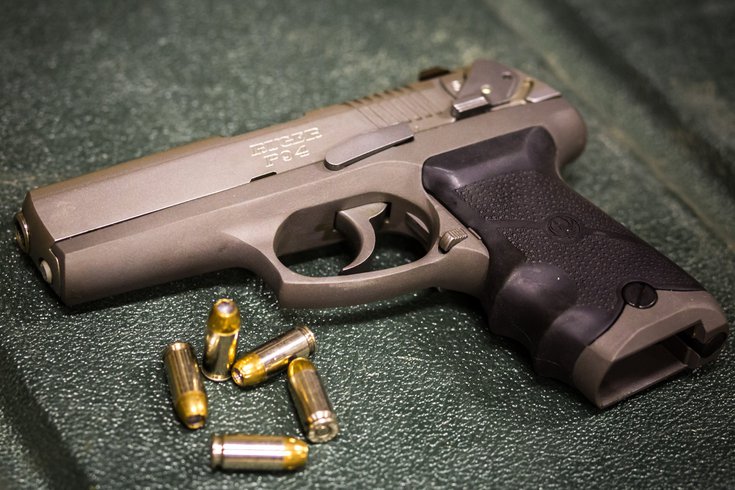
February 13, 2023
 Thom Carroll/for PhillyVoice
Thom Carroll/for PhillyVoice
The 'It Doesn't Kill to Ask' campaign encourages parents and caregivers to ask friends, family and neighbors if they have unsecured guns in their homes before children visit.
In 2020, gunshots surpassed car accidents as the leading cause of death among children and adolescents for the first time in American history, making the United States the only country of its size and wealth where firearms are the top cause of mortality.
Some hospitals are seeking to reduce that sobering number through a safety campaign that challenges parents to have difficult conversations with friends, family members and neighbors about the guns in their homes. The "It Doesn't Kill to Ask" initiative calls on caregivers to start these discussions before their children visit, and to find out first and foremost if those guns are secured.
"Our view is that this is a public health crisis, and it needs to be treated that way," said Jim Woodward, the CEO of Trinity Health Mid-Atlantic.
Trinity Health Mid-Atlantic is the latest health network to take up the campaign, which originated at New York's Northwell Health. Since January, health care providers at Trinity's St. Mary Medical Center, Mercy Fitzgerald Hospital, Nazareth Hospital and Saint Francis Hospital have been talking to patients about the importance of securing guns in their homes and broaching the subject with others. The four hospitals also have been mailing newsletters with the same message to patients in Darby, Langhorne, Philadelphia and Wilmington.
The idea underlying the campaign is that parents are too nervous to have these conversations over the fear of offending gun owners. Guns, and even gun safety, have become a touchy subject as the debate over gun control has grown increasingly polarized.
"I think people feel awkward bringing it up," Woodward said. "It's also something, quite candidly, 10 years ago, physicians or nurses or folks in the ER never would have thought about having to bring this up."
But Woodward and other proponents of the campaign said it's not about passing judgment or getting into a policy debate. It's just about preventing lethal accidents.
"I think people are worried about offending, but you're talking about people's lives, and I think that concern should be shelved to really push that forward," he said.
Health experts believe these conversations are an important first step toward reducing child mortalities. The recent mass shootings at the Robb Elementary School in Uvalde, Texas, and locally, Roxborough High School, have reignited concerns over keeping kids safe from guns.
While a bullet can obliterate an adult's body, it can be all the more catastrophic for a child who's still growing, particularly bullets that expand or explode on impact.
"You'll see some bullets that are designed to roll in the tissue and cause extreme damage," said Dr. Burt Blackstone, chief of trauma surgery at St. Mary Medical Center. "So even though it's penetrating just like a regular bullet, once it gets in there, it wreaks havoc with the tissue around it. And since there's more compact organs in a little kid, they could be subject to potential greater harm."
In addition to the devastating physical effects, a shooting can cause profound psychological harm. Stanford researchers have found that child survivors of school shootings tend to use antidepressants at a higher rate; they also may skip class more or struggle to graduate.
When it comes to preventing accidental shootings in the home — tragedies that disproportionately affect children under age 5 — it's important to equip each gun with a trigger lock, an inexpensive bit of hardware often available for free at police stations. Gun safes are the next layer of protection, and their keys should be kept out of children's reach.
If parents ask about unsecured guns and get a response that makes them uncomfortable, they don't need to minimize it, Trinity Health officials said.
"If somebody has a stomach virus or has the flu, this is kind of in the same category," Woodward said. "You have to think of it in the same category. It's safety, it's awareness, it's education.
"I don't want to send my kid over if they're vulnerable."
Follow Kristin & PhillyVoice on Twitter: @kristin_hunt | @thePhillyVoice Like us on Facebook: PhillyVoice Have a news tip? Let us know.